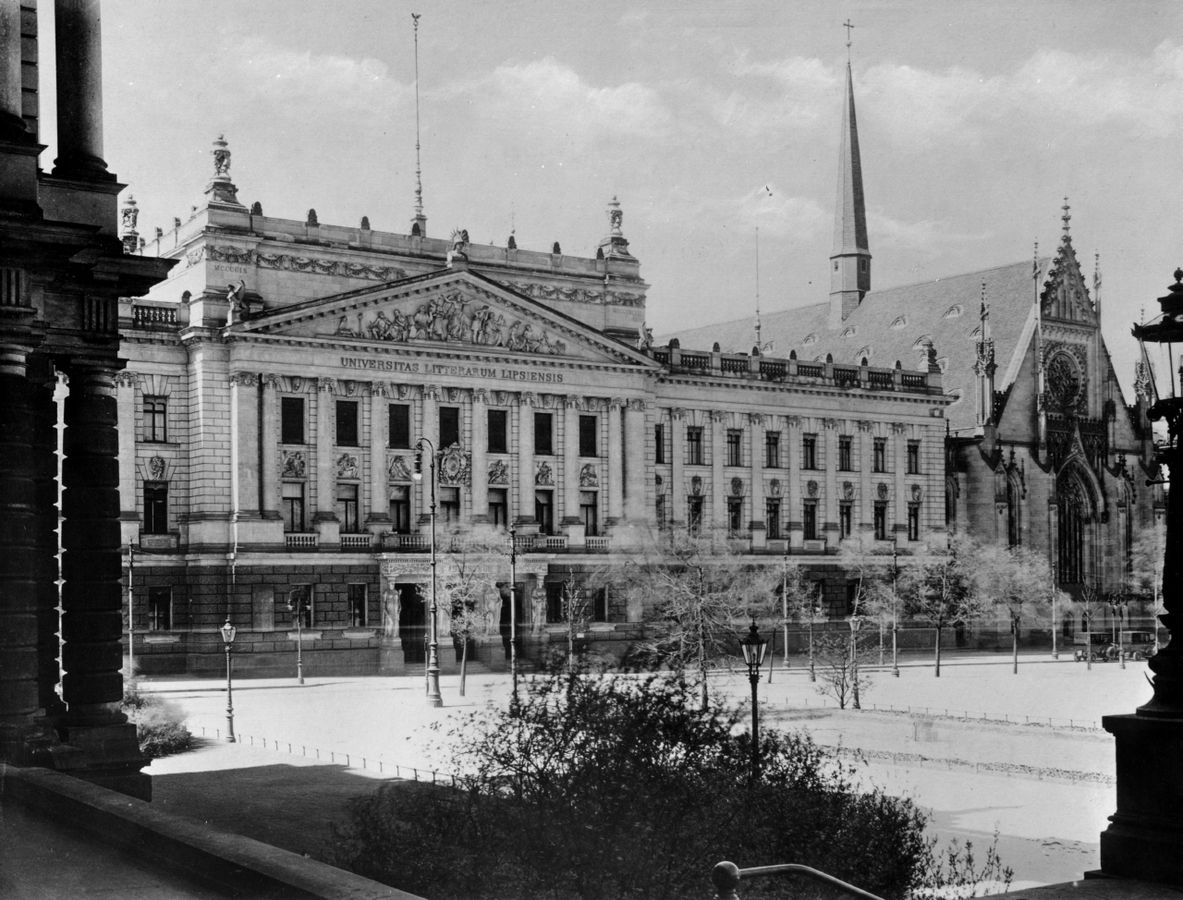The Institute of Applied Linguistics and Translatology (IALT) stands for a 60-year tradition of training language mediators. Here, you can learn more about our institute’s history.
In the university city of Leipzig, translators and interpreters were already being trained at various private and public schools between 1937 and 1945.
The municipal “Foreign Language School of the City of Leipzig” founded in 1945 was made a state vocational college in 1949.
Four years later, this became the “Department of Interpretation and Translation” at the newly founded Pedagogical Institute of Leipzig.
On September 1, 1956, the Institute of Interpretation was founded as an academic training institute at Karl Marx University. The university was founded in 1409 as the “Alma mater Lipsiensis” and is the second oldest university in Germany after the University of Heidelberg.
On January 24, 1969, the “Department of Theoretical and Applied Linguistics for education in foreign-language philologies” was founded, including the language mediation department (for translation and interpretation training).
German reunification led to tremendous changes in the higher education sector, too. After fundamental restructuring, the Institute of Linguistics and Translation Studies was founded in December 1993. In 1999 it was renamed Institute of Applied Linguistics and Translatology. The institute is part of the Faculty of Philology, the largest of the University of Leipzig’s 14 faculties.
Translatology has traditionally been a focus of interest in Leipzig, which is also reflected in the current IALT curricula. The 1965 International Translatology Conference was the first of its kind worldwide. It was followed by four more conferences on fundamental questions of translatology. Their results have been noted internationally to the present day, and they were fundamental in establishing the reputation of the “Leipzig School of Translation Studies”.
Initially, this branch of translatology, often just called “The Leipzig School”, had a strong linguistic and lexical focus, with emphasis on Slavonic languages. It was shaped by scholars like Otto Kade (who introduced “translation” as the umbrella term for translation and interpretation), Gert Jäger, Albrecht Neubert, Heide Schmidt, and Gerd Wotjak.
For more than five decades, specialist language research as a profile‑defining discipline of applied linguistics has also been intricately connected with Leipzig scholars such as Rosemarie Gläser and Lothar Hoffmann. Their work has enjoyed general recognition, which is reflected in it being called the “Leipzig School of Specialist Language Research” by other scholars.
Against the backdrop of globalization and the accompanying increase in knowledge transfer, cognitive-communicative and interlingual-intersubject-contrastive aspects of international specialized communication have become the current subjects of interdisciplinary research and training of the next generation. The aim is to train much needed research and teaching staff within an acceptably short period of time and in high quality. This is in response to the demand for university programmes dealing with knowledge transfer in international specialized communication, a demand which is growing worldwide.
Since the end of the 1990s, the different communicative acts involving (translational) transmission and cognitive processing of specialized information structures have become the strategic focus of analyses in specialized communication. These information structures are constituted through specific structural and functional relations on the various levels of specialized communication. Such a communicative-cognitive approach aims at the constructive development of a mental model of knowledge transfer in specialized communication as well as its integration in various translation strategies in specialized communication, which primarily manifest themselves during the translation process.
The methodological positions of research in the field of specialized communication, research that is becoming more and more interdisciplinary, have also opened new perspectives for adjacent disciplines of applied linguistics such as translatology. This is because the structural‑functional and communicative‑cognitive approach to specialized communication offers information on the comprehensive determination mechanisms of knowledge transfer and can enable students learning a foreign language for specific purposes within a philological or non-philological course to develop a dynamic (productive/receptive), subject- or training‑specific communicative expertise and proficiency.
Bearing in mind the respective individual and societal requirements for acquiring and mediating language for specific purposes as well as specialist knowledge, the efforts of researchers in Leipzig also consist in the optimization of practical learning and teaching strategies aiming at mastering specialized communication situations. Technical translation is known to have an integrating function between language instruction and training in a non-linguistic subject.
